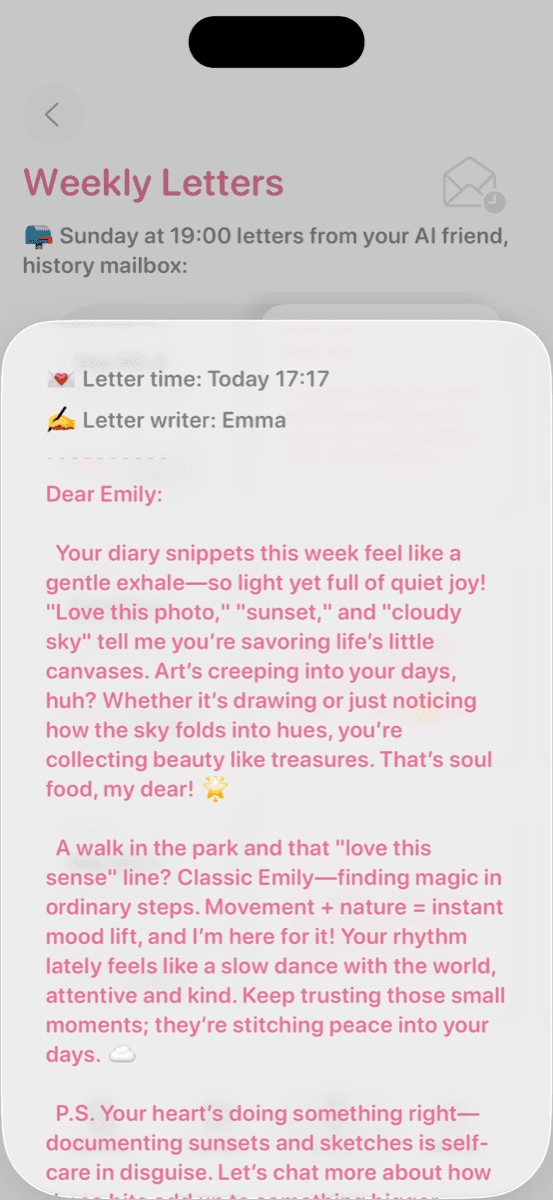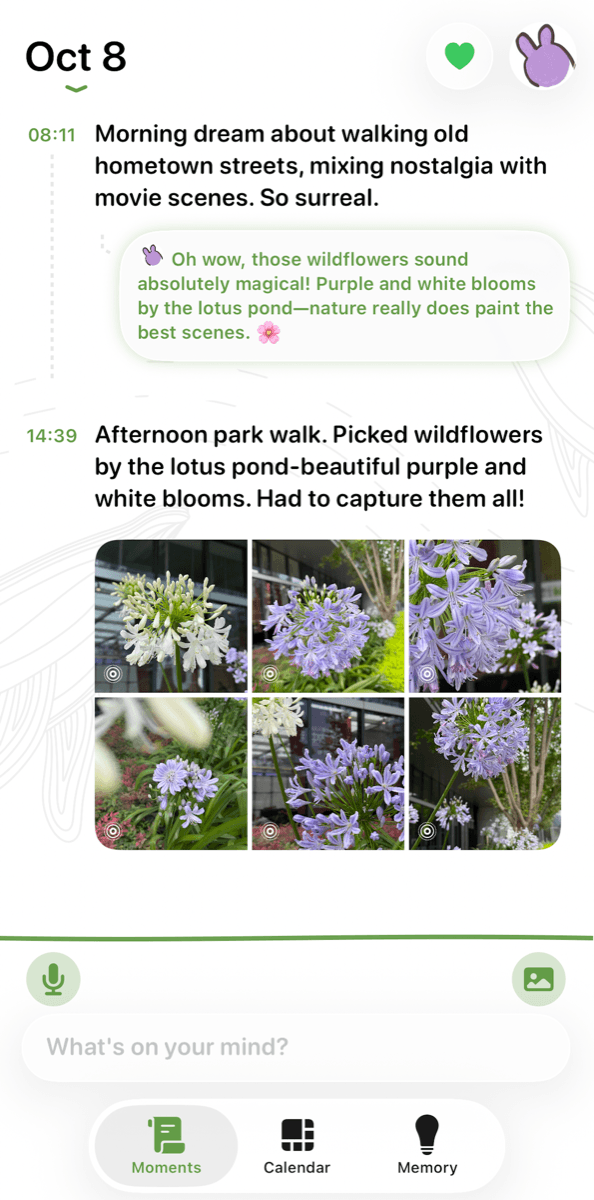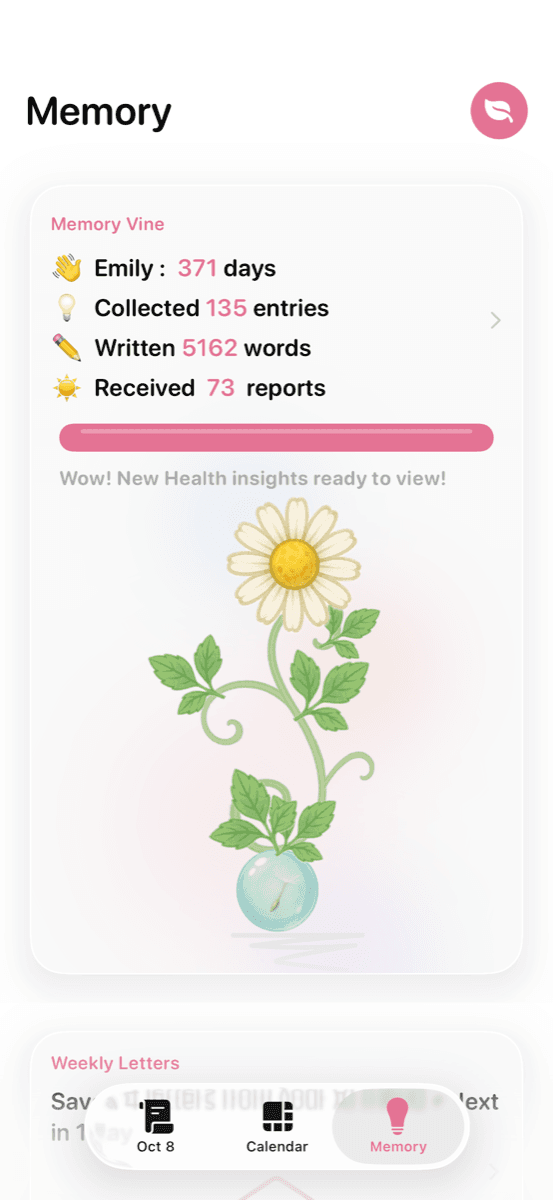Is journaling actually effective, or just trendy self-care advice?
Here's what 30+ years of research shows: Journaling provides measurable mental health benefits for the majority of people who maintain a consistent practice.
This isn't wishful thinking. It's documented in peer-reviewed journals, replicated across studies, and backed by neuroscience.
The Documented Mental Health Benefits
Anxiety Reduction (20-30% Decrease)
Research finding: Regular journaling reduces anxiety symptoms by 20-30% on average.
How it works:
- Writing about stressors reduces their power (externalization)
- Externalizing worries prevents rumination loops
- Pattern recognition helps identify specific triggers
- Creates psychological distance from problems
A 2018 study in the Journal of Anxiety Disorders found that expressive writing reduced trait anxiety significantly more than control conditions across 146 studies.
Depression Symptom Improvement (15-25% Reduction)
Research finding: Journaling reduces depression symptoms by 15-25%, especially when combined with therapy.
How it works:
- Gratitude journaling shifts attention from negative to positive
- Tracking positive events builds evidence against negative bias
- Emotional expression prevents suppression (which worsens depression)
- Provides sense of control and agency
Research on gratitude journaling shows consistent 25% increases in happiness scores after just 3 weeks of daily practice.
Stress Management and Cortisol Reduction
Research finding: Expressive writing lowers cortisol levels (the stress hormone) measurably.
How it works:
- Processing stressful experiences through writing reduces physiological stress response
- Improved emotional regulation
- Better stress coping strategies developed over time
- Resilience building through reflection
A University of Texas study found that people who journaled about traumatic experiences had significantly lower cortisol levels than control groups.
PTSD and Trauma Processing
Research finding: Structured journaling as adjunct to therapy reduces PTSD symptoms.
How it works:
- Narrative exposure to trauma in controlled doses
- Creates coherent story from fragmented memories
- Reduces emotional intensity through repeated exposure
- Helps integrate traumatic experiences
Important: Trauma journaling should be done with therapeutic guidance, not alone.
Sleep Quality Improvement
Research finding: Pre-bed journaling significantly improves sleep quality and reduces time to fall asleep.
How it works:
- Worry dump technique clears racing thoughts
- Writing to-do list for tomorrow reduces anticipatory anxiety
- Processing emotions prevents nighttime rumination
- Establishes calming bedtime ritual
A 2018 study in the Journal of Experimental Psychology found that spending 5 minutes writing a to-do list before bed helped participants fall asleep 9 minutes faster on average.
Self-Awareness and Emotional Intelligence
Research finding: Regular journaling increases self-awareness, emotional intelligence, and metacognition.
How it works:
- Pattern recognition over time (what triggers certain emotions)
- Identifying emotional triggers and responses
- Understanding behavioral cycles
- Metacognition development (thinking about thinking)
Physical Health Benefits (Yes, Really)
Research finding: Journaling improves immune function, wound healing, and reduces doctor visits.
Documented effects:
- Immune function: Increased T-lymphocyte response
- Wound healing: Faster healing after biopsy (documented study)
- Blood pressure: Reduced in hypertensive patients
- Fewer doctor visits: 43% reduction in one study
James Pennebaker's pioneering research showed that people who wrote about traumatic experiences for 15-20 minutes over 4 days had measurably better immune function months later.
How Long Until You See Benefits?
Immediate (First Session):
- Emotional release
- Reduced acute stress
- Mental clarity
2 Weeks:
- Pattern recognition begins
- Mood stabilization
- Better emotional awareness
1 Month:
- Noticeable mood improvement
- Anxiety reduction measurable
- Sleep quality better
3+ Months:
- Significant anxiety/depression reduction
- Behavioral changes
- Lasting habit formation
6+ Months:
- Lasting cognitive changes
- Improved coping skills
- Increased resilience
Key finding: Consistency matters more than duration. 10 minutes daily beats 1 hour weekly.
What Makes Journaling Effective?
The Cognitive Processing Theory
Writing/speaking about experiences forces you to organize chaotic thoughts into coherent narratives. This processing reduces emotional intensity.
Exposure Therapy Principles
Journaling provides controlled exposure to difficult emotions. Repeated exposure in a safe context reduces fear and avoidance.
Neuroplasticity and Habit Formation
Regular journaling creates new neural pathways for emotional processing. Over time, you literally rewire your brain's response to stress.
Why Writing/Speaking Matters (Not Just Thinking)
Externalizing thoughts makes them concrete. You can examine them objectively. Internal rumination lacks this distance.
Digital vs. Handwritten Journaling Research
Both are effective! Here's what research shows:
Handwritten advantages:
- Deeper cognitive processing (more brain regions activated)
- Better memory retention
- Slower pace allows more reflection
Digital advantages:
- Better long-term adherence (40% higher consistency)
- Searchable entries (find past patterns)
- Pattern analysis through mood tracking
- Convenience (always accessible)
Mental health outcomes: No significant difference. Both show similar anxiety/depression reduction.
Digital-specific benefit: Apps like Lifelight can detect patterns you'd miss manually. Automatic mood tracking shows correlations between activities and emotions. AI analysis provides insights beyond human pattern recognition. Visual charts make progress tangible. One study showed digital journaling had 40% better adherence rates due to convenience—and consistency is what drives benefit.
Journaling Practices Backed by Research
1. Expressive Writing (Pennebaker Method)
The protocol:
- Write about a traumatic or stressful experience for 15-20 minutes
- Do this for 3-4 consecutive days
- Focus on deepest thoughts and emotions
- Don't worry about grammar or structure
Evidence: Most-studied journaling intervention. Proven benefits across 200+ studies for anxiety, depression, PTSD, immune function, and blood pressure.
2. Gratitude Journaling
The protocol:
- Write 3-5 things you're grateful for daily
- Be specific (not just "I'm grateful for my family")
- Explain why you're grateful
- Consistency matters more than length
Evidence: Increases happiness by 25% on average. Reduces depression. Improves relationships. Effects last months after stopping.
3. Mood Tracking with Reflection
The protocol:
- Track mood daily (simple 1-10 scale)
- Note activities, sleep, social interaction
- Weekly review of patterns
- Adjust behavior based on insights
Research finding: Mood tracking alone provides 30% benefit. Tracking PLUS reflection provides 60% benefit.
Lifelight Integration: Lifelight combines both: automatic mood detection for easy tracking, then AI companion guides reflection on patterns. Users discover: "I thought I was always anxious. Data showed I'm anxious specifically before phone calls—huge difference for treatment approach." The weekly AI letters synthesize patterns you'd never notice day-to-day. This research-backed combination (tracking + guided reflection) is more effective than either alone.
4. Structured Prompts
The protocol:
- Answer specific questions instead of free writing
- Reduces cognitive load
- Ensures addressing important topics
Evidence: Better than free writing for beginners. Improves consistency. Guides deeper reflection.
Example evidence-based prompts:
- What am I worried about right now?
- What went well today, and why?
- What did I learn about myself today?
- What do I need to forgive myself for?
5. Worry Time Journaling (CBT-Based)
The protocol:
- Designate 15 minutes daily to write all worries
- Contains anxiety to specific time
- Reduces rumination throughout day
- Train brain: "I'll worry during worry time, not now"
Evidence: Significantly reduces generalized anxiety. Improves sleep. Part of evidence-based CBT protocols.
Who Benefits Most from Journaling?
High benefit (significant symptom reduction):
- People with high trait anxiety
- PTSD (with therapeutic guidance)
- Chronic stress/burnout
- Emotional dysregulation
Moderate benefit:
- Depression (not replacement for treatment)
- Chronic illness coping
- Life transitions
- Grief processing
Mild benefit:
- General wellness
- Memory keeping
- Goal setting
Caveat: 10-15% of people see no benefit or experience increased distress (particularly with trauma journaling without guidance).
Common Mistakes That Reduce Effectiveness
- Focusing only on negative: Creates rumination instead of processing. Include positive or neutral observations.
- No pattern reflection: Tracking without insight = limited benefit. Review entries weekly.
- Inconsistency: Starting and stopping repeatedly. Benefits compound with consistency.
- Perfectionism: Elaborate entries are unsustainable. Simple is better.
- Avoidance coping: Using journaling to avoid taking action on problems.
- Trauma journaling alone: Should be done with therapeutic support.
How to Journal for Maximum Benefit (Research-Based)
- Consistency over perfection: 5 minutes daily > 1 hour weekly
- Combine tracking + reflection: Both together more effective than either alone
- Include positive experiences: Not just problems
- Weekly pattern review: Insights come from reviewing, not just writing
- Use prompts when stuck: Structure helps when overwhelmed
- Choose sustainable method: Handwritten or digital—whatever you'll maintain
- Aim for 2+ months: Benefits increase over time
Final Thoughts
The research is clear: Journaling provides measurable mental health benefits for the majority of people who maintain a consistent practice.
Not a cure. Not a replacement for therapy or medication. But a powerful, evidence-based tool for:
- Reducing anxiety and depression
- Processing difficult emotions
- Improving self-awareness
- Building resilience
- Even boosting physical health
Digital tools now make evidence-based journaling more accessible than ever. The question isn't whether journaling works—the research proves it does. The question is: which method will you actually maintain?
Start small. Stay consistent. Trust the process. The benefits compound.


